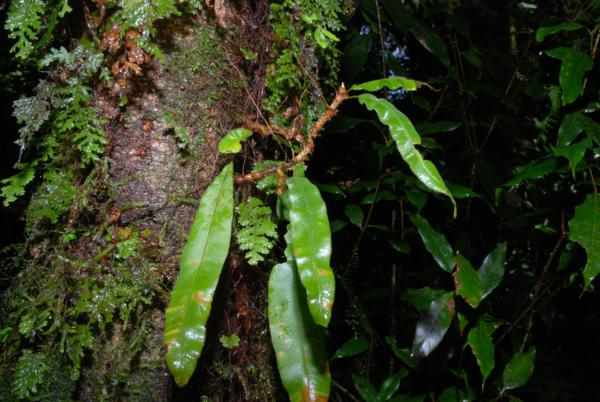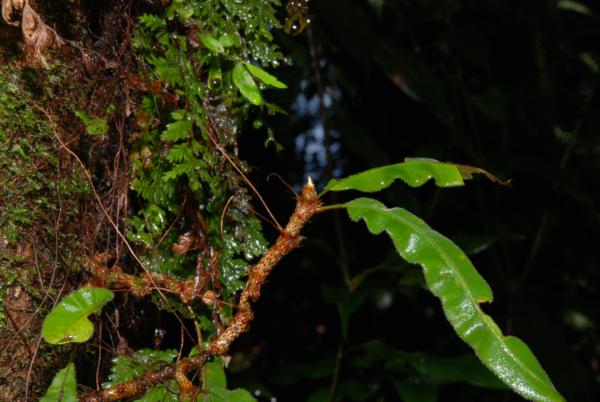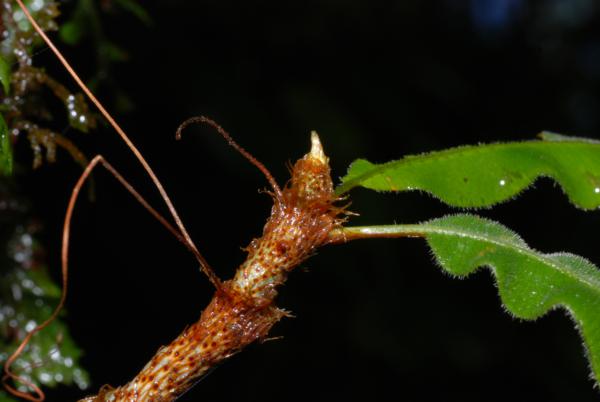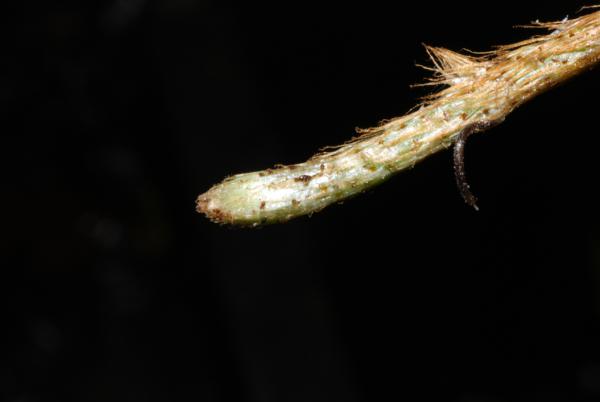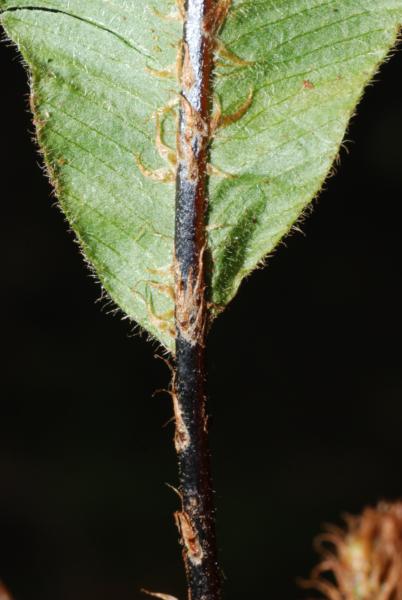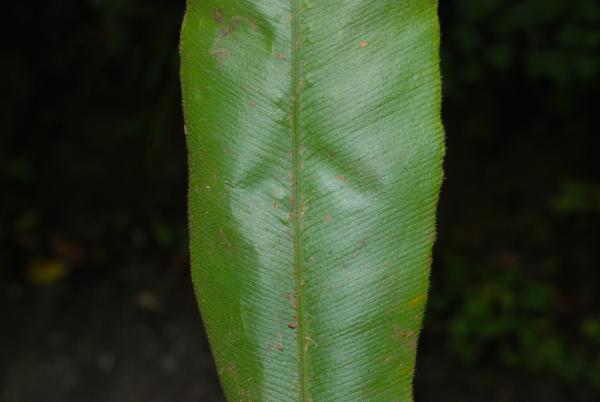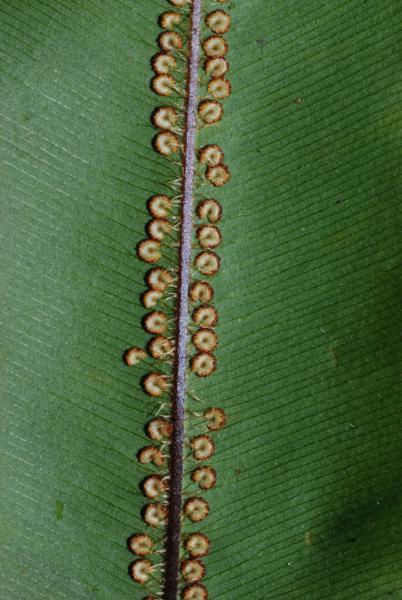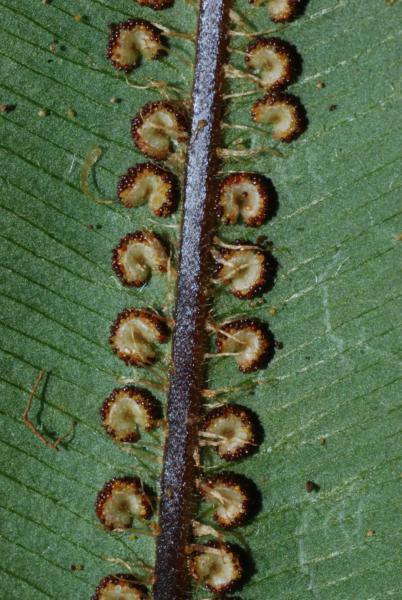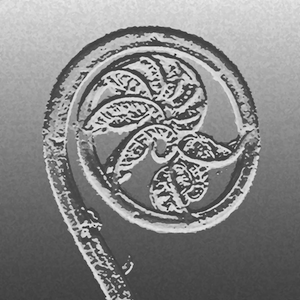
Oleandra wallichii (Hook.) C.Presl
Family
Oleandraceae
Nomenclature
Oleandra wallichii (Hook.) C.Presl, Tent. Pterid.: 78. 1836; Bedd., Handb. Ferns Brit. India: 287, f. 147. 1883; Tardieu & C.Chr., Fl. Indo-Chine 7(2): 284. 1940; Ching, Fl. Reipubl. Popularis Sin. 2: 321. 1959; Holttum, Dansk Bot. Ark. 20: 26. 1961; Tagawa & K.Iwats., SouthE. Asian Stud. 5: 78. 1967; Tagawa & K.Iwats., Fl. Thailand 3: 179, f. 13.4. 1985; Boonkerd & Pollawatn, Pterid. Thailand: 176, 240. 2000. – Aspidium wallichii Hook., Exot. Fl. 1: t. 5. 1823.
Description
Rhizome long creeping, 3–4 mm diam., green or somewhat glaucous, bearing 1–3 fronds in distant tufts, densely scaly throughout; scales not appressed, oblong with long tails, round at basal edge, about 6 mm long including tails of 4 mm, 0.7 mm broad, dark brown, entire, sparsely short-hairy at apical margin. Fronds simple. Stipes dark brown to darker, 0.5–3 cm long, usually with scales and hairs, with phyllopodia less than 1 cm high. Laminae linear-lanceolate, rather suddenly narrowed, and cordate at apex, round at base, up to 35 by 4 cm, herbaceous, hairy, densely especially at margin; midrib raised below, densely scaly and hairy. Sori in one row on each side of midrib and close to it; indusia up to 1.5 mm in breadth, minutely hairy .
Distribution in Thailand
NORTHERN: Chiang Mai; NORTH-EASTERN: Loei.
Wider Distribution
Himalayas, Upper Burma, SW China, Taiwan and Vietnam.
Ecology
On mossy tree trunks or on rather dry mountain-slopes in evergreen forests at 1300– 2500 m alt.
Proposed IUCN Conservation Assessment
Least Concern (LC). This species is widespread and not under any known threat.
Voucher specimens - Thailand
Middleton et al. 4915, Chiang Mai, Doi Inthanon National Park (E); Middleton et al. 4920, Chiang Mai, Doi Inthanon National Park (E).
Habit
Habit
Rhizome
Growing apex of rhizome
Stipe and base of lamina
Upper surface of lamina
Lower surface of lamin and sori
Sori
Site hosted by the Royal Botanic Garden Edinburgh. Content managed by Stuart Lindsay, Gardens by the Bay, Singapore and David Middleton, Singapore Botanic Gardens. Last updated 24 January 2012
